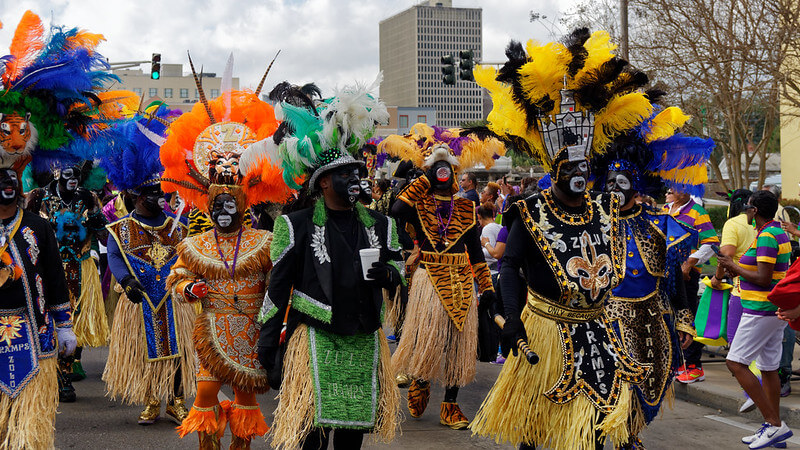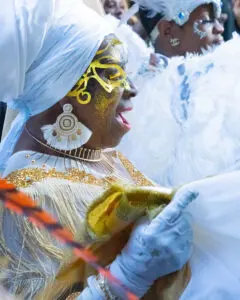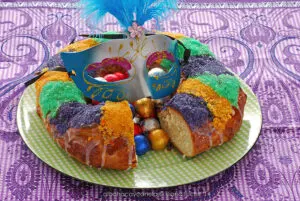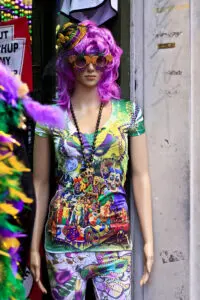Mardi Gras (French for Fat Tuesday) is an annual festival season marked by a series of events during the Carnival celebration.
The celebration begins on the day of Epiphany (a Christian feast) and ends on the day before Ash Wednesday. Fat Tuesday signifies the last night of eating fatty foods before the Christian Lenten fast. It is usually celebrated after the twelfth day of Christmas and lasts for a week.
Become an insider. Subscribe to our newsletter for more top trending stories like this!
While Mardi Gras is a popular festival, there are many unknown things about the celebration. Here are some not-so-known history and traditions of Mardi Gras:
Mardi Gras has a pagan origin.
Although Mardi Gras is widely known as a Christian festival, it has a pagan origin. There were celebrations for spring and fertility in 133–31 BC called Saturnalia and Lupercalia. They were used to honor Saturn, the god of agriculture. The celebrations usually lasted a week, from December 17-23.
In 45 BC, the festival fell on Christmas day. From then on, Christians gradually began to celebrate it as what is now known as Mardi Gras.
The first North American Mardi Gras was celebrated in Mobile, not New Orleans.
Did you know New Orleans is not the birthplace of Mardi Gras? The first North American Mardi Gras was celebrated in Mobile, Alabama. Here’s how it all happened:
A French-Canadian explorer named Pierre Le Moyne d’Iberville arrived and camped at Mobile on March 3, 1699. The location was 60 miles downriver from what is now known as New Orleans, Louisiana. On arrival, he named the site “Point du Mardi Gras” because it was the period of Mardi Gras in France. He threw a small party there.
Years later, some French settlers and soldiers threw a festival with masks on the future site of Mobile. Therefore, Mobile boasts one of the oldest celebrations in America.
King Cake got its name from the Bible.
The traditional dessert of Mardi Gras, King Cake, wasn’t just named that way for fun. During the Middle Ages, the name was derived from the Bible.
Become an insider. Subscribe to our newsletter for more top trending stories like this!
King Cake specifically represents the Three Wise Men, the kings who brought gifts and sweets to Jesus. They gave gifts to the newborn baby Jesus in the manger on the twelfth day of Christmas (the day Mardi Gras is usually celebrated).
Today, King Cakes are fried, glazed, and circular cakes baked in the shape of a crown. They are usually made in Mardi Gras colors (purple, green, and gold).
Over 70 secret societies are associated with the festival.
In 1857, a secret society called the Mistick Krewe of Comus threw a grand ball in New Orleans. It reawakened the Mardi Gras festival and made New Orleans the epicenter. Years later, more secret societies sprung up and threw their celebrations. They include the Krewe of Rex, the Les Mysterieuses, the Knights of Momus, the Krewe of Chewbacchus, and the Zulu Social Aid.
Today, the celebration is associated with over 70 secret societies. Each of them has a theme on parade days annually, and they usually invite a celebrity guest to entertain their audience.
Mardi Gras colors have deeper meanings.
Purple, green, and gold, the traditional colors of the festival, happen to have special meanings. Legend has it that when Grand Duke Alexei Alexandrovich of Russia visited in 1872, he gave out purple, green, and gold beads to the guests because those were the colors of his home.
Now, the triad of colors symbolizes the festival, with each color representing different virtues; purple for justice, gold for power, and green for faith.
Become an insider. Subscribe to our newsletter for more top trending stories like this!









